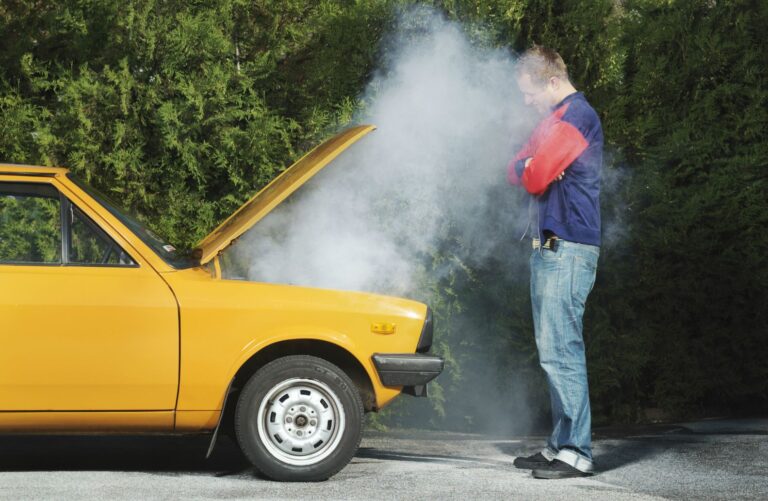How Do I Know If I Own A Lemon In San Diego?

Buying a car is a significant investment, and you expect it to run smoothly and reliably. However, sometimes you might find yourself with a lemon – a vehicle with persistent, unfixable issues that make your ownership experience a nightmare. So, how do you know if you own a lemon? In this article, we’ll explore the signs to watch out for and the steps to take if you suspect your vehicle might be a lemon.
Signs That Your Car Might Be a Lemon
-
Frequent Repairs
One of the most telling signs that you might own a lemon is if your vehicle requires constant repairs. If you find yourself visiting the mechanic’s shop repeatedly for the same issues shortly after purchase, it’s a red flag. While all cars require maintenance, an unusually high number of repairs can indicate a lemon.
-
Safety Concerns
Safety is paramount when it comes to vehicles. If your car has recurring safety issues, such as malfunctioning brakes, airbags, or electrical problems that impact safety features, it’s a serious concern. These issues not only put your life at risk but may also classify your car as a lemon.
-
Persistent Issues
Some issues in your car might not be safety-related but can still be incredibly frustrating. Examples include problems with the transmission, engine, or a mysterious “check engine” light that never seems to go away. If these issues persist even after multiple repair attempts, your car may be a lemon.
-
Warranty Worries
Often, lemon cars show their true colors within the warranty period. If your vehicle repeatedly requires warranty-covered repairs and the problems persist, it’s a strong indication that you have a lemon on your hands. Manufacturers usually have a responsibility to repair or replace lemon cars during the warranty period.
-
Legal Definitions
In many regions, there are legal definitions and guidelines that determine whether your car qualifies as a lemon. These laws vary, but they often require that the same issue be unsuccessfully repaired a certain number of times within a specific timeframe. Be sure to familiarize yourself with your local lemon laws to understand your rights.
What to Do If You Suspect Your Car Is a Lemon
-
Keep Records
From the moment you notice issues with your car, start keeping detailed records. Document all repairs, including dates, what was done, and who performed the work. These records will be essential if you decide to pursue a lemon law claim.
-
Contact the Manufacturer
If you believe your car is a lemon, reach out to the manufacturer’s customer service department. Describe the issues you’ve experienced and the repair attempts made. Some manufacturers may offer to repurchase or replace the vehicle to maintain their reputation.
-
Consult an Attorney
If your efforts to resolve the issue with the manufacturer are unsuccessful, consider consulting an attorney experienced in lemon law cases. They can guide you through the legal process and help you determine if you have a valid claim.
FAQs
What Are Lemon Laws, And How Do They Protect Consumers?
Lemon laws are state-specific regulations that provide legal remedies to consumers who have purchased defective vehicles, commonly referred to as “lemons.” These laws vary from state to state but generally require that a vehicle meets certain criteria, such as repeated repair attempts within a specified timeframe, to be classified as a lemon. If your car qualifies, you may be entitled to a refund, replacement, or cash compensation.
Can I Take Legal Action Against The Manufacturer If I Own A Lemon?
Yes, you can take legal action against the manufacturer if you own a lemon. Most lemon laws provide consumers with the right to seek remedies through a legal process. It’s advisable to consult an attorney who specializes in lemon law cases to help you navigate the legal system and maximize your chances of a favorable outcome.
Are There Any Alternatives To Pursuing A Lemon Law Claim?
If pursuing a lemon law claim seems too daunting or time-consuming, you may consider alternative dispute resolution methods, such as arbitration or mediation, provided by the manufacturer or a third-party organization. However, these methods may not always result in a satisfactory resolution, so consulting an attorney is often the most effective course of action.
Conclusion
Owning a lemon car can be a frustrating and financially draining experience. If you suspect that your vehicle is a lemon, look out for signs like frequent repairs, safety concerns, and persistent issues. It’s crucial to keep records, contact the manufacturer, and, if necessary, consult an attorney experienced in lemon law cases. Lemon laws exist to protect consumers, so familiarize yourself with your local regulations to understand your rights. Remember, if you do own a lemon, you don’t have to endure the inconvenience and expense indefinitely – there are legal avenues available to help you get the resolution you deserve.
At Scott Law Group P.C. We have years of expertise assisting individuals in pursuing lemon law claims for compensation. We provide a free consultation so that you may determine whether or not you have a case, and we only get paid if we are successful in representing you in that matter. For further information, please get in touch with us right away at (619) 345-5599.
If you need a professional lemon lawyer for your case, contact us right away!
(619) 345-5599
Our Services
California Lemon Law
FAQs
Leased Vehicles
Lemon Law Explained
Used Vehicles
Motorcycles
RVs And Motor Homes
Reasonable Number Of Repairs
